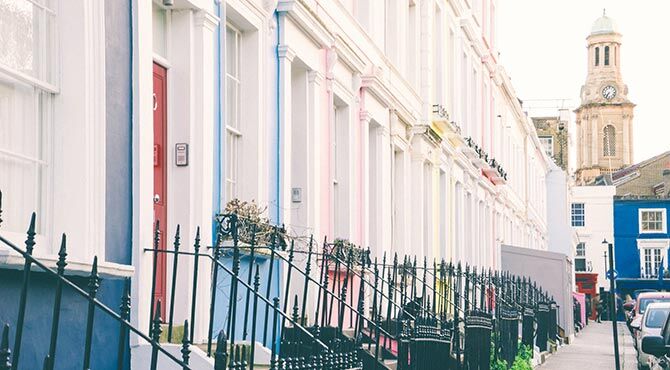London property market depressed by fewer expats
High prices and Brexit uncertainty have both caused a fall in London property prices. Is Brexit having an effect in other parts of the UK?

 24 May 2018
24 May 2018London property prices undergoing a price correction
Even so, London continues to be the area with by far the highest average house price, currently standing at £472,000.Jonathan Hopper, managing director of Garrington Property Finders, said: "London is paying a painfully high price for its stellar run of price rises, and a correction is now under way in several parts of the capital."While London contains a tapestry of micro-markets - variously going up, down and sideways - the headline figure is a wake-up call for both sellers and buyers."Related articles:
- UK housing market roundup and predictions for 2018
- UK Residential Property
- Hard Brexit will damage the benefits of UK citizenship says new report
But apartments - or flats as they are known in Britain - have increased in price faster than other property types over the past five years, according to an analysis by the bank lender Halifax.The report found that the average price of a flat - the favoured accommodation of many overseas assignees - had increased to £232,135, a jump of 48 per cent or £75,074 since 2013. This increase compares to a 27 per cent rise in the average price of a detached home, 39 per cent for semi-detached houses and 41 per cent for a property in a terrace.Russell Galley, managing director of Halifax Bank, said: "Although flats have recorded greater price gains over the past five years than any other property type, semi-detached and terrace homes have remained the most popular choices for home buyers."More than a third of first-time buyers are still choosing terrace homes as their first step on to the property ladder, but we're starting to see more of them choose detached houses, as the number has crept up in recent years."
Property owners expect home values to increase
Meanwhile, a survey by the property website Zoopla suggests that home-owners' confidence in the property market has undergone a revival in the past six months with 84 per cent of home-owners expecting values in their area to increase over the coming six months - an increase from 70 per cent in a similar survey last November.Across Britain, only eight per cent of those surveyed expected property prices to decrease in their areas over the next six months. Home-owners in the East Midlands and the East of England were the most optimistic about property price rises.Lawrence Hall, a Zoopla spokesman, said: "It's encouraging to see a bounce-back in consumer confidence in the market - it's the largest increase we've seen since 2016."This shows that home-owners are starting to regain their confidence in the property market, with those in the east of the UK having the most optimism."A report from rival property website Rightmove suggested the average asking price of a home in the UK reached a record high of £308,075 in May, with the price of properties coming to market jumping by £2,343, or 0.8 per cent month-on-month.Average home asking price growth
But Miles Shipside, Rightmove director, said: "After six years of continual year-on-year price growth the current market is becoming increasingly price-sensitive, with new-to-the-market sellers being limited to an average asking price growth of just 1.1 per cent over the last year."This is in spite of there being plenty of historically cheap mortgage products around for buyers who meet lenders' criteria."Sellers need to pitch their price at a tempting level to entice buyers, as while there are signs of strong demand there appears to be hesitation among some buyers to commit."Rightmove said a lack of homes for sale meant estate agents in some areas were reporting that the right properties at the right price were still selling briskly. London and SE England were the only regions where asking prices were lower year-on-year, down 0.2 and 0.1 per cent respectively.For related news and features, visit our Property section.Relocate’s new Global Mobility Toolkit provides free information, practical advice and support for HR, global mobility managers and global teams operating overseas. Access hundreds of global services and suppliers in our Online Directory
Access hundreds of global services and suppliers in our Online Directory
©2024 Re:locate magazine, published by Profile Locations, Spray Hill, Hastings Road, Lamberhurst, Kent TN3 8JB. All rights reserved. This publication (or any part thereof) may not be reproduced in any form without the prior written permission of Profile Locations. Profile Locations accepts no liability for the accuracy of the contents or any opinions expressed herein.




























